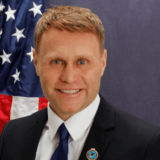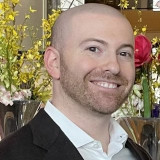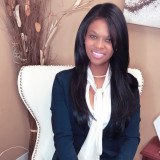A machine for making hook headed spikes was constructed in
Boston, prior to the 18th of April, 1839, and therefore not within
a patent for a machine for a similar purpose which Burden applied
for on that day.
This was a bill filed by the Troy Iron & Nail Factory, a
manufacturing corporation established in the State of New York, to
restrain the Odiornes from infringing certain letters patent
granted to Henry Burden, on the 2d of September, 1840, and by him
assigned to the complainant.
The respondents filed an answer, taking various grounds of
defense, which it is not necessary under the circumstances of the
case to particularize. At October term, 1851, the following
stipulation was signed by the parties, and filed in the cause:
"The defendants agree not to deny the validity of the
complainants' patent, provided they make out their title to the
said letters patent to be good."
"They also agree not to deny that the machine complained of in
the complainants' bill is an infringement on the patent granted to
H. Burden on August 4, 1840. [Sept. 2.]"
"If the complainants shall establish their title to the letters
patent aforesaid, the proper decree may be entered for the
complainants unless the defendants shall prove that the spike
machine used by them and complained of in the bill aforesaid was
constructed prior to the alleged application of H. Burden, made
April 18, 1839, for letters patent therefor according to the
provisions of the statute of the United States, 1839, ch. 88, sec.
7, or was the result of an independent, original invention, prior
in time to the invention of the said Burden, in either of which
cases the proper decree shall be entered for defendants."
"C. P. CURTIS, JR.,
Plaintiff's attorney"
"J. A. ANDREW,
for defendants"
Much testimony was taken upon the subjects involved, and in
December, 1852, the circuit court dismissed the bill.
From this decree, the complainant appealed to this Court.
Page 58 U. S. 73
MR. JUSTICE CATRON delivered the opinion of the Court.
Henry Burden obtained a patent, in 1840, for a machine to make
hook headed spikes. He applied for the patent on the 18th of April,
1839. It was assigned to the Tory Iron & Nail Company, who
filed a bill against the Odiornes to enjoin them and for an account
for using a machine to make similar spikes, and which machine, it
is alleged, infringed the monopoly secured to Burden by his patent
of 1840. The case was brought to a hearing on the following
stipulation:
"The defendants agree not to deny the validity of the
complainant's patent, provided they make out their title to the
said letters patent to be good."
"They also agree not to deny that the machine complained of in
the complainant's bill is an infringement on the patent granted to
H. Burden on August 4, 1840."
"If the complainants shall establish their title to the letters
patent aforesaid, the proper decree may be entered for the
complainants unless the defendants shall prove that the spike
machine used by them and complained of in the bill aforesaid was
constructed prior to the alleged application of H. Burden, made
April 18, 1839, for letters patent therefor according to the
provisions of the statute of the United States, 1839, ch. 88, sec.
7, or was the result of an independent, original invention prior in
time to the invention of the said Burden, in either of which cases
the proper decree shall be entered for defendants."
The only question presented for our consideration on the
stipulation is whether the machine employed by the appellees was
constructed prior to the 18th of April, 1839, when Burden made
application at the patent office for his patent.
The machine complained of was built by Richard Savary for the
Boston Iron Company in the spring of 1839, and obtained by the
appellees by assignment. Savary was the patentee of a machine to
make ship and boat spikes, and at the suggestion of the agents of
the Boston Iron Company, added an attachment of an apparatus to
make a hook head to spikes, the process for making which, Savary
deposes, he discovered in August, 1838. The time at which this
apparatus was attached to the machine substantially complete in its
operative parts is the time when the machine complained of was
"constructed" in the sense of the stipulation, it not being
necessary that the machine should be geared and doing work. We are
satisfied that it was set up, and substantially finished before the
18th of April, 1839, and therefore order the decree below to be
Affirmed.
Page 58 U. S. 74
Order
This cause came on to be heard on the transcript of the record
from the circuit Court of the United States for the District of
Massachusetts, and was argued by counsel, on consideration whereof
it is now here ordered, adjudged, and decreed by this Court that
the decree of the said circuit court in this cause be and the same
is hereby affirmed, with costs.
* Mr. JUSTICE CURTIS, having been of counsel, did not sit in
this cause.




